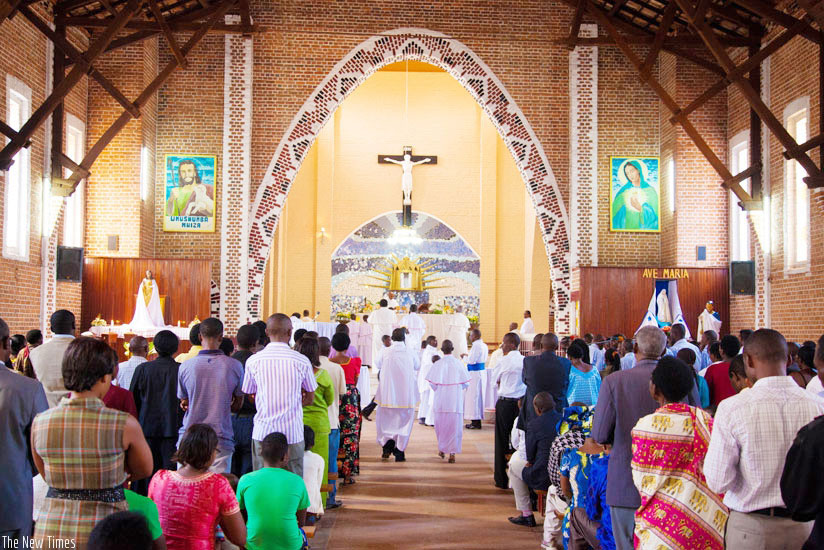
The Rwandan genocide of 1994 is perhaps one of the darkest chapters in recent human history. Along with the Srebrenica Genocide, it is one of the two cases that were legally acknowledged as genocide by a competent international court. This genocide was the culmination of a decades-long ethnic conflict between the Tutsis and Hutus, resulting in the killings of more than 800,000 Tutsis and moderate Hutus by Hutu extremists in the timespan of 100 days. This tragic event came to the spotlight recently when news broke about the Rwandan Catholic Church’s apology for its members' role in the systematic massacres that took place during the Rwandan Genocide.
On 20 November, the Catholic Church of Rwanda issued an apology that was contained in a joint communique signed by nine bishops constituting the Catholic Episcopal Conference of Rwanda. The apology was supposed to be read out in Catholic parishes across the country for the last day of the year of ‘Jubilee of God’s Mercy’ that was declared by Pope Francis last year to promote reconciliation and mercy.
According to press reports, the apology partly reads as follows:[1]
We apologise for all the wrongs the Church committed. We apologise on behalf of all Christians for all forms of wrongs we committed. We regret that Church members violated (their) oath of allegiance to God's commandments.
Even though the Church sent no body to do harm, we, the Catholic clerics in particular apologize, again, for some of the church members, clerics, people who dedicated themselves to serve God and Christians in general who played a role in the 1994 Genocide against the Tutsi.
It appears that this apology was made specifically in relation to the role of some Catholic Church members during the Rwandan Genocide. Apart from those who tried to make efforts to prevent the killings, some members of the Rwandan Catholic Church have been commonly accused for ignoring or facilitating the massacres. Some members of the Rwandan Catholic Church even actively participated in the massacres in different ways. Many horrible massacres were committed in churches and parishes where minority ethnic Tutsis who took shelter were hunted down by Hutu militias. One notorious case is the killing of 2,000 Tutsi refugees as a result of the destruction of a church with bulldozers by order of Athanse Seromba, a Catholic priest.
Ultimately, many were tried by the UN International Criminal Tribunal for Rwanda (ICTR), as well as local Rwandan courts. In fact, of the 93 individuals indicted by ICTR, four were Catholic priests;[2] among them, two were found guilty, including Seromba who was sentenced to life imprisonment.
Yet, this apology seems to be unsatisfying for many Rwandans as well as the Government of Rwanda.[3] In reaction to the apology by the Church, the Rwandan government issued the following statement:[4]
The Government of Rwanda notes the recent initiative of Rwanda’s nine Catholic bishops to apologize, in a general manner, for some of the acts committed by some members of the Catholic Church during the Genocide against the Tutsi.
This step is welcome, as individual expressions of remorse. However, its profound inadequacy only serves to highlight how far the Catholic Church still remains from a full and honest reckoning with its moral and legal responsibilities.
First, as they apologise on behalf of a few unnamed individuals, the bishops appear to take the extraordinary step of exonerating the Catholic Church as a whole for any culpability in connection with the Genocide. Everything in the historical record contradicts this divisive claim.
Second, it is regrettable that some priests apparently declined to read the bishops’ message to parishioners as intended, thus disassociating themselves from even this mild expression of regret.
Finally, given the scale of the crimes, there is ample justification for an apology from the Vatican, as has occurred repeatedly with other cases of lesser magnitude.
The Government of Rwanda commends the bishops’ points on the importance of combatting genocide ideology, and will continue to engage in an open and frank dialogue with Church leaders with a view towards encouraging the Catholic Church to face up to its own past without excuses or fear, just as Rwandans themselves have been doing over the past twenty-two years.
In parallel with the government’s statement, many believe that the Church should have apologized not for the role of some of its members, but for its role as an institution. The Catholic Church of Rwanda is commonly blamed for its general inaction and omission during the massacres. It is commonly stated that the Catholic Church, given its very influential position in Rwanda at the time, could have had a preventive role with regards to the killings. It is even reported that many Tutsi survivors believe that the Church sided with the perpetrators of the massacres from the beginning at the very top of the Catholic hierarchy in Rwanda. For instance, Archbishop Vincent Nsengiyumva of Kigali, who was killed during the conflicts in Rwanda in 1994, is stated to have been within the inner-circle of the Hutus that eventually committed the massacres.[5] Yet, as stated in the statement by the government, the apology is seen by many an effort of “exonerating the Catholic Church as a whole for any culpability in connection with the Genocide.” It is not seen as genuine and the fact that it was not read in all parishes enforces this assumption.
As implied in the Rwandan government’s statement, the Holy See (the administrative center of the Roman Catholic Church located in Vatican City) is also subject to criticism with regard to its approach to the issue. The Holy See has been accused for years for being in denial of the Rwandan Catholic Church’s role in the massacres. It is stated that the Holy See paints the Roman Catholic Church as a victim of both the mass killings – because priests and nuns were also among those slaughtered – and of persecution by Rwanda’s current government, which has jailed members of the clergy and accused its leadership for complicity. Furthermore, there are also claims that the Roman Catholic Church and its members have helped some of the perpetrators of the genocide flee Rwanda to escape persecution or shielded them from extradition.[6]
Ultimately, many Rwandans have long called for the Holy See to apologize for the Rwandan Catholic Church’s role in the genocide and its aftermath. Many expect the Holy See to admit, at least, the Catholic Church’s “sin of omission”. The apology of the Catholic Church of Rwanda is undoubtedly a positive move. There is no doubt that it was made within the knowledge of the Vatican. Even so, apparently, the Vatican, in the eyes of many, continues to give the impression that it avoids the issue. Considering the fact that no pope has visited Rwanda since 1990,[7] what is clear is that Pope Francis should focus more on the Catholic Church’s role in the legally-established Rwandan Genocide of 1994, rather than diverting attention with unfounded allegations and accusations of genocide in the context of his remarks about the 1915 events.
*Photo: The New Times
[1] [1] “Catholic Church in Rwanda apologises for role in 1994 genocide”, Vatican Radio, 22 November 2016, http://en.radiovaticana.va/news/2016/11/22/catholic_church_in_rwanda_apologises_for_role_in_genocide/1273928
“Catholic Church in Rwanda apologizes for role in genocide”, Deutsche Welle, 21 November 2016, http://www.dw.com/en/catholic-church-in-rwanda-apologizes-for-role-in-genocide/a-36471020
“Catholic Church apologises for role in 1994 Genocide”, The New Times, 21 November 2016, http://www.newtimes.co.rw/section/article/2016-11-21/205558/
[2] “Rwanda's Catholic Church says sorry for its role in 1994 genocide”, CNN, 21 November 2016, http://edition.cnn.com/2016/11/21/africa/rwanda-catholic-church-apology/
[3] [3] “[LETTERS] Genocide against the Tutsi: How remorseful is the Catholic Church?”, The New Times, 23 November 2016, http://www.newtimes.co.rw/section/article/2016-11-23/205613/
“Take Catholic Church apology with a pinch of salt”, The New Times, 22 November 2016, http://www.newtimes.co.rw/section/article/2016-11-22/205581/
Sunny Ntayombya, “Rwanda: The Catholic Church - When an Apology Isn't an Apology”, All Africa, 23 November 2016, http://allafrica.com/stories/201611230149.html
[4] Republic of Rwanda, “Statement on the Message of Rwandan Catholic Bishops”, 23 November 2016, http://gov.rw/newsdetails2/?tx_ttnews%5Btt_news%5D=1639&cHash=a3519f3e839ac977cf175334e240a5ce
[5] Martin Kimani, “For Rwandans, the pope's apology must be unbearable”, The Guardian, 29 March 2010, https://www.theguardian.com/commentisfree/belief/2010/mar/29/pope-catholics-rwanda-genocide-church
[6] Chris McGreal, “The Catholic church must apologise for its role in Rwanda's genocide”, The Guardian, 8 April 2014, https://www.theguardian.com/commentisfree/2014/apr/08/catholic-church-apologise-failure-rwanda-genocide-vatican
Chris McGreal, “Hiding in plain sight in France: the priests accused in Rwandan genocide”, The Guardian, 7 April 2014, https://www.theguardian.com/world/2014/apr/07/rwanda-genocide-20-years-priests-catholic-church
[7] Kenneth Agutamba, “Pope Francis fails to end Vatican silence on Rwanda”, The New Times, 29 November 2015, http://www.newtimes.co.rw/section/article/2015-11-29/194830/
© 2009-2025 Center for Eurasian Studies (AVİM) All Rights Reserved
No comments yet.
-
 ARMENIA’S PROPAGANDA PROJECT IN EUROVISION 2015
ARMENIA’S PROPAGANDA PROJECT IN EUROVISION 2015
Ali Murat TAŞKENT 31.05.2015 -
 SERZH SARGSYAN’S RECENT CONTACTS WITH THE EUROPEAN PEOPLE’S PARTY
SERZH SARGSYAN’S RECENT CONTACTS WITH THE EUROPEAN PEOPLE’S PARTY
Ali Murat TAŞKENT 25.10.2015 -
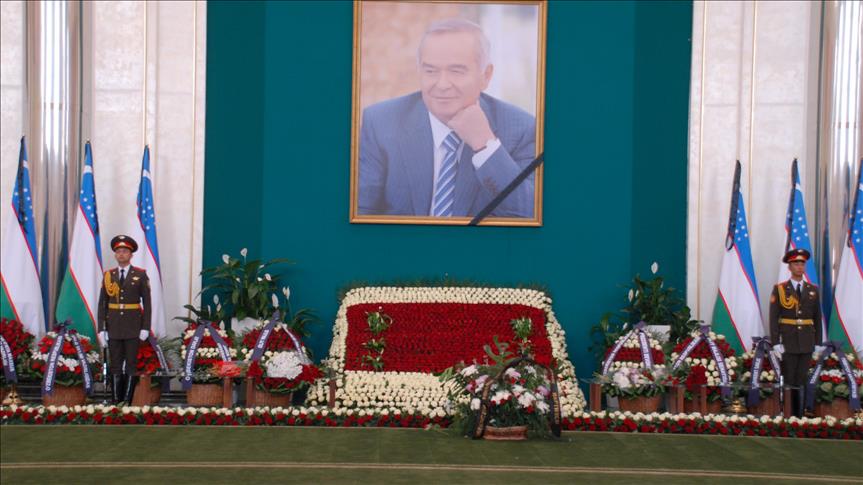 UZBEKISTAN SHOWS ITS MATURITY
UZBEKISTAN SHOWS ITS MATURITY
Ali Murat TAŞKENT 29.09.2016 -
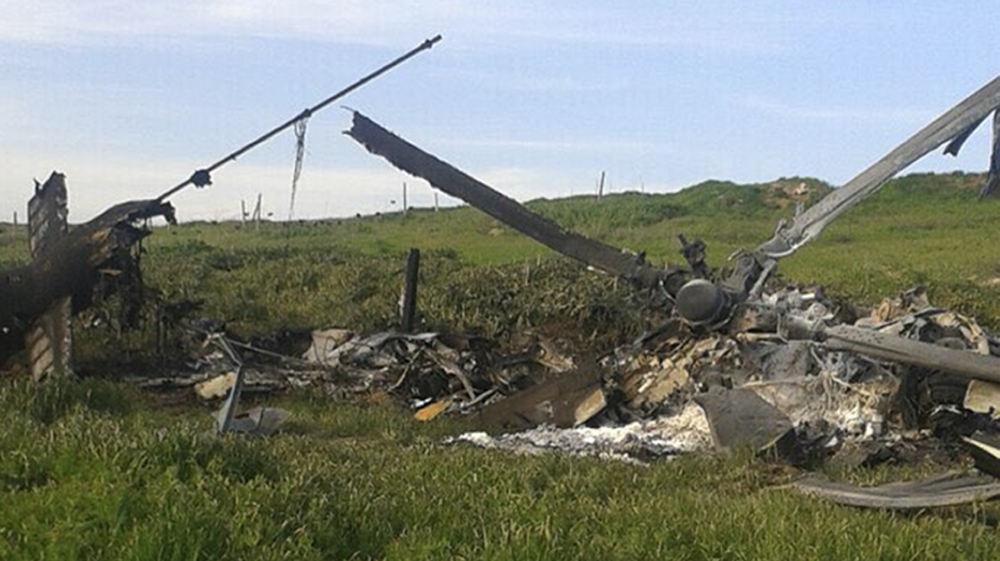 A FLAGRANT VIOLATION OF INTERNATIONAL LAW: THE CASE OF NAGORNO-KARABAKH
A FLAGRANT VIOLATION OF INTERNATIONAL LAW: THE CASE OF NAGORNO-KARABAKH
Ali Murat TAŞKENT 31.05.2017 -
 BOOK REVIEW-SASUN: THE HISTORY OF AN 1890S ARMENIAN REVOLT
BOOK REVIEW-SASUN: THE HISTORY OF AN 1890S ARMENIAN REVOLT
Ali Murat TAŞKENT 12.04.2015
-
 CALL FOR PAPERS: JOURNAL OF INTERNATIONAL CRIMES AND HISTORY
CALL FOR PAPERS: JOURNAL OF INTERNATIONAL CRIMES AND HISTORY
Ali Kenan 20.02.2014 -
FUTURE OF THE TURKEY-ARMENIA PROTOCOLS
Ömer Engin LÜTEM 24.01.2010 -
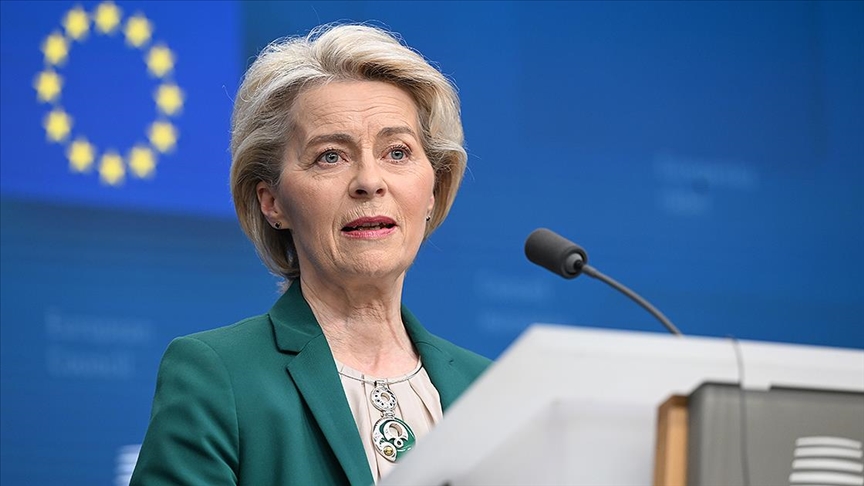 THE FUTURE OF EUROPEAN DEFENCE: SEEKING A NEW PATH IN THE SHADOW OF TRUMP POLICIES
THE FUTURE OF EUROPEAN DEFENCE: SEEKING A NEW PATH IN THE SHADOW OF TRUMP POLICIES
Hazel ÇAĞAN ELBİR 17.04.2025 -
 LOW-ENRICHED URANIUM (LEU) BANK TO BE ESTABLISHED IN KAZAKHSTAN
LOW-ENRICHED URANIUM (LEU) BANK TO BE ESTABLISHED IN KAZAKHSTAN
Pelin EMLİK 06.09.2015 -
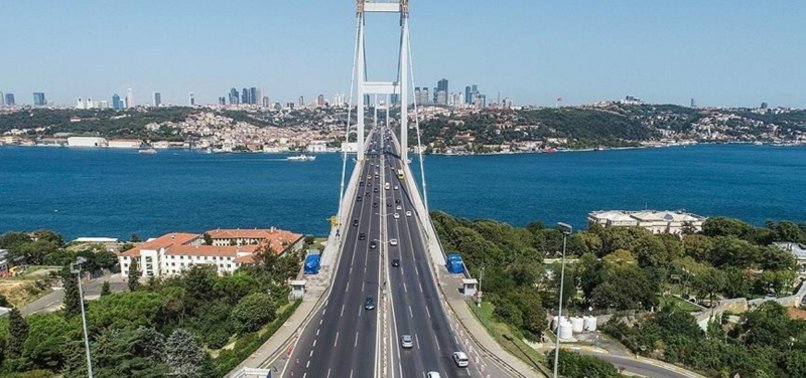 TÜRKİYE'S EVOLVING ROLE AS A EURASIAN NEXUS: A BALANCED PERSPECTIVE
TÜRKİYE'S EVOLVING ROLE AS A EURASIAN NEXUS: A BALANCED PERSPECTIVE
Teoman Ertuğrul TULUN 04.07.2024
-
25.01.2016
THE ARMENIAN QUESTION - BASIC KNOWLEDGE AND DOCUMENTATION -
12.06.2024
THE TRUTH WILL OUT -
27.03.2023
RADİKAL ERMENİ UNSURLARCA GERÇEKLEŞTİRİLEN MEZALİMLER VE VANDALİZM -
17.03.2023
PATRIOTISM PERVERTED -
23.02.2023
MEN ARE LIKE THAT -
03.02.2023
BAKÜ-TİFLİS-CEYHAN BORU HATTININ YAŞANAN TARİHİ -
16.12.2022
INTERNATIONAL SCHOLARS ON THE EVENTS OF 1915 -
07.12.2022
FAKE PHOTOS AND THE ARMENIAN PROPAGANDA -
07.12.2022
ERMENİ PROPAGANDASI VE SAHTE RESİMLER -
01.01.2022
A Letter From Japan - Strategically Mum: The Silence of the Armenians -
01.01.2022
Japonya'dan Bir Mektup - Stratejik Suskunluk: Ermenilerin Sessizliği -
03.06.2020
Anastas Mikoyan: Confessions of an Armenian Bolshevik -
08.04.2020
Sovyet Sonrası Ukrayna’da Devlet, Toplum ve Siyaset - Değişen Dinamikler, Dönüşen Kimlikler -
12.06.2018
Ermeni Sorunuyla İlgili İngiliz Belgeleri (1912-1923) - British Documents on Armenian Question (1912-1923) -
02.12.2016
Turkish-Russian Academics: A Historical Study on the Caucasus -
01.07.2016
Gürcistan'daki Müslüman Topluluklar: Azınlık Hakları, Kimlik, Siyaset -
10.03.2016
Armenian Diaspora: Diaspora, State and the Imagination of the Republic of Armenia -
24.01.2016
ERMENİ SORUNU - TEMEL BİLGİ VE BELGELER (2. BASKI)
-
AVİM Conference Hall 24.01.2023
CONFERENCE TITLED “HUNGARY’S PERSPECTIVES ON THE TURKIC WORLD"









